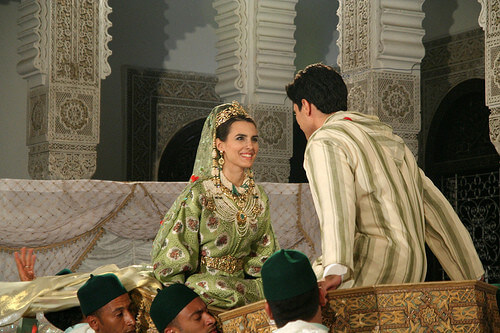Women Adoul in Morocco! 37% of the successful candidates are Women
Women Adoul in Morocco! The Not So Modern Legal Dilemma
“The Adoul examination entry for the year 2018 results were unveiled July 21st 2018, 299 women candidates were retained which makes up 37% of the 800 successful candidates” .
Behind this seemingly anodyne announcement hides one of the most controversial and bold decisions of King Mohammed VI of Morocco, decision made on 22ndJanuary 2018 in his religious capacity as the commander of the believers to allow women to exercise the Adoul profession reserved until then to men.
The decision and the journey to reach it opened an old age debate surrounding the ability of women to be competent witnesses and plunged the country in a jurisprudential crisis that brought to the forefront some glaring contradictions and discrepancies.
Even if the profession of Adoul in Morocco borrowed its name from the Koran, but it is in essence a legal profession. Adoul can perform several tasks including:
· drawing contracts including contracts of marriage and divorce settlements;
· certification;
· wills; and
· inheritance.
So why was the profession of Adoul off limit for women in Morocco knowing that women can take office as judges, notaries, lawyers and expert witnesses?
It is surprising to learn that what stood as a hurdle on the way of women and the Adoul profession is simply the testimony component. Testimony (shahada) is an attestation with regard to a right of a party against a third.
The only verse of the Koran that evokes the gender of a witness and was interpreted by some as equating the testimony of two women to that of one man, is the verse of debt, which occurs in Koran in verse 2:282.
There has never been a unanimous opinion as to the religious stance on the value of women’s testimony. Some scholars categorised the verse as recommendation or merely instructional and without legal import. Others opined that the recording of debts, witnessing, and all other matters dealt with in the verse may be categorised as obligatory.
The debate surrounding the numerical value of witnesses testimony, including the probative value of women’s, is not unique to Morocco or to the Muslim world.
The rules surrounding testimony were a natural reflection of the fixed popular probative notions of each period of time, notions that saw the value of a witness increased, decreased or neutralised depending on the social ranking, slavery, freedom status or gender.
The legal life went through a multitude of stages including the divine, the formal, and the intellectual stages, the transition from one stage to the other did not occur abruptly and immediately. Now this principle of evidence is largely acknowledged to be unsound and deleterious, nonetheless a form of history worth examining.
What I noted is that what is on trial is not the testimony per se, but women themselves. This is the common denominator of all the topics involving women rights in Morocco. Stripped from the dogma, Adoul is a legal profession established by law, classified as auxiliary to the court. A profession that men and women could exercise if they have the right qualifications and training.
Author:

Ihsane Elidrissi Elhassani
Founder and Principal Sollicitor at Sterling Stamp London
For any further inquiries, contact us on : i.elidrissi@sterlingstamp.com
Check our latest Article about: Construction Work in the UK and the payments’ provisions under the the UK Legislative framework.


